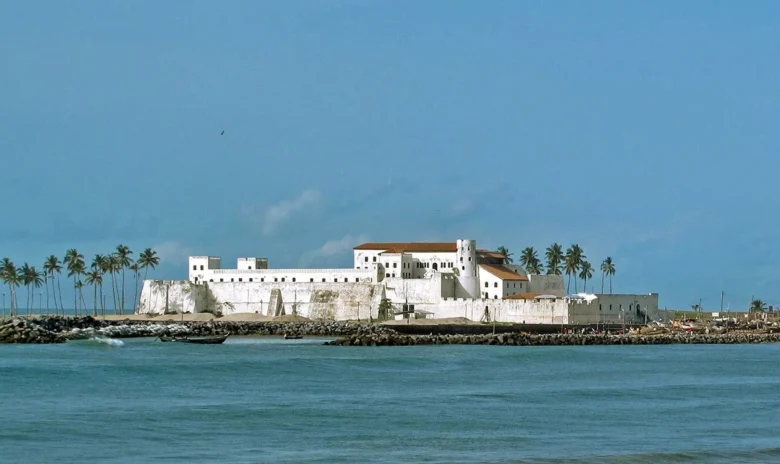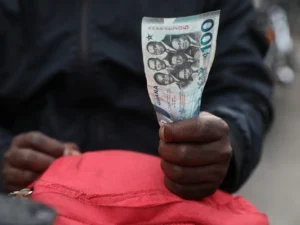Ghana is a vibrant, culturally rich country with year-round sunshine, colorful festivals, and welcoming people. But not all months offer the same experience. Knowing when to visit based on weather, events, and travel crowds can help you plan an unforgettable trip.
This guide breaks down the best times to visit Ghana depending on your interests—whether it’s sightseeing, attending cultural festivals, or enjoying Ghana’s coastline.
Ghana’s Climate: What to Expect
Ghana has a tropical climate with two main seasons: the wet (rainy) season and the dry season. The country’s weather patterns vary slightly by region—coastal areas like Accra differ from the northern savannah regions like Tamale or Bolgatanga.
Overview of Seasons
| Season | Months | Weather Characteristics |
|---|---|---|
| Dry Season | November – March | Hot, sunny days; Harmattan wind (Dec–Feb) |
| Rainy Season 1 | April – June | Short but intense rainfall in the south |
| Rainy Season 2 | September – October | Lighter rain, mostly in southern Ghana |
| Minor Dry Season | July – August | Cloudy but drier, especially in coastal zones |
- Northern Ghana has one long rainy season (May–October) and one long dry season (November–April).
- Southern Ghana has two rainy seasons (April–June and September–October) and two dry seasons (July–August and November–March).
Tip: Always check the Ghana Meteorological Agency for real-time forecasts and seasonal outlooks.
Best Time to Visit for Good Weather
November to March – Peak Travel Season
This is the most popular time to visit Ghana, especially for first-time tourists.
Why visit now:
- Minimal rain, warm days, and cool nights
- Easier road travel and better access to national parks
- Ideal for beach trips, safaris, and city tours
- Many cultural and music festivals occur during this window
Cons:
- Higher demand means flights and accommodation cost more
- Tourist spots like Cape Coast and Kakum Park can get crowded in December
What to Pack:
- Light breathable clothing
- Sunglasses, hat, and sunscreen
- A light sweater for Harmattan evenings (December–February)
Best Time for Festivals and Cultural Events
Ghana is famous for its year-round traditional and cultural festivals, many of which are region-specific. If you want to immerse yourself in Ghanaian culture, timing your visit around a festival is highly rewarding.
Major Festivals and When They Occur
| Festival | Month | Location | Highlights |
|---|---|---|---|
| Homowo | August–Sept | Accra (Ga people) | Drumming, dancing, family feasts |
| Aboakyer | May | Winneba | Deer hunting contest, traditional processions |
| Panafest | July (biannual) | Cape Coast/Elmina | African diaspora celebration, durbars, music |
| Chale Wote | August | Jamestown, Accra | Street art, fashion, music, visual arts |
| Damba Festival | Sept–Nov | Northern Ghana | Royal regalia, drumming, horse shows |
| Akwasidae | Every 6 weeks | Kumasi (Ashanti) | Asante king’s public appearance and rituals |
| Fetu Afahye | September | Cape Coast | Purification rituals, dancing, traditional dress |
Tip: Confirm festival dates with locals or check official tourism sites like VisitGhana.com as traditional calendars can shift.
Best Time for Wildlife and Nature
December to April – Dry Season Safaris
If you’re planning to visit Mole National Park or Kakum National Park, the dry months from December to April are the best.
- Animals gather around watering holes, making them easier to spot.
- Trails and forest canopy walks are more accessible and less muddy.
- Fewer mosquitoes compared to wet season
This is the ideal time for bird watching, forest hikes, and eco-tourism in Ghana’s protected areas.
Notable locations:
- Mole National Park (elephants, antelope, baboons)
- Kakum National Park (canopy walk)
- Ankasa Conservation Area (birding and rainforest)
Best Time for Budget Travelers
April to June or September to October – Shoulder Season
These months fall between the high and low seasons. Rain is more frequent, but usually occurs in short, heavy bursts, mostly in the early morning or evening.
Benefits:
- Cheaper flights and accommodation
- Fewer tourists at popular attractions
- Lush green landscapes for photography
Considerations:
- Rural roads may be harder to travel
- Some outdoor attractions may be temporarily closed or waterlogged
Tip: If you’re planning to travel during this season, bring waterproof gear and flexible schedules.
Avoiding the Harmattan: What You Should Know
From December to February, Ghana experiences the Harmattan, a dry, dusty wind that blows from the Sahara.
Pros:
- Cooler evenings
- Dramatic, unique atmospheric conditions
Cons:
- Dust in the air can affect visibility and cause respiratory irritation
- Skin dryness, chapped lips, and allergies
Precautions:
- Pack a face mask or scarf
- Use moisturizer and lip balm daily
- Keep electronics and lenses protected from dust
Monthly Travel Overview
| Month | Weather | Events/Festivals | Crowd Level | Notes |
|---|---|---|---|---|
| January | Dry, warm | New Year celebrations | Moderate | Great time for beaches and hiking |
| February | Dry, dusty | Independence prep starts | Low–moderate | Watch for Harmattan dust |
| March | End of dry | Independence Day (March 6) | High | Lots of parades, cultural shows |
| April | Rain begins | Easter festivities | Moderate | Wet season starts in the south |
| May | Raining | Aboakyer Festival | Moderate | Lush landscapes but plan around rain |
| June | Wet | Local festivals | Low | Avoid long road trips |
| July | Mildly dry | Panafest (biennial), Akwasidae | Moderate | Cultural celebrations peak |
| August | Cloudy/dry | Chale Wote, Homowo | High | Great for creatives and photographers |
| September | Light rain | Fetu Afahye | Moderate | Plan activities between showers |
| October | End of rain | Damba Festival (north) | Low–moderate | North is drier, good for safaris |
| November | Dry season | Pre-Christmas events | Rising | Ideal weather returns |
| December | Dry, festive | Christmas, Afrochella, Detty December | High | Parties, concerts, and social life boom |
Planning Your Trip Around Peak Travel Seasons
Peak Season (Nov–March, Dec especially)
- Pros: Best weather, most activities, vibrant social life
- Cons: Higher prices, need for early bookings, busy beaches and sites
Off-Peak Season (April–June, Sept–Oct)
- Pros: Fewer tourists, better deals
- Cons: Weather is unpredictable, outdoor plans may need adjusting
Conclusion
The best time to visit Ghana depends on what kind of traveler you are. For perfect weather and full access to Ghana’s outdoor wonders, plan your trip between November and March. If you’re more culturally curious, time your visit around major festivals like Homowo, Chale Wote, or Akwasidae.
Budget travelers or those looking to avoid crowds should consider April–June or September–October, with appropriate rain planning.
Whichever season you choose, Ghana offers unforgettable beauty, rich traditions, and a warm welcome year-round—just pack accordingly and plan smart.




